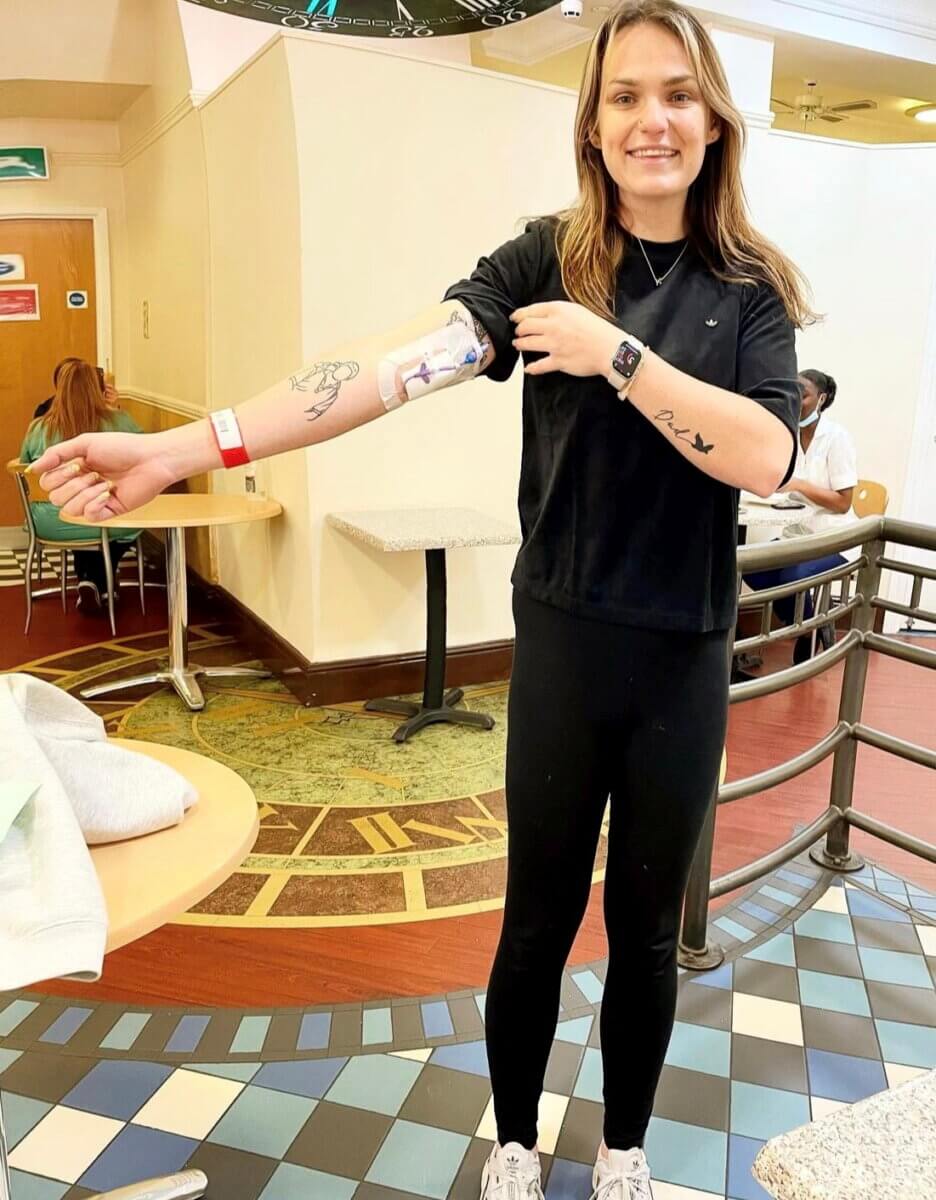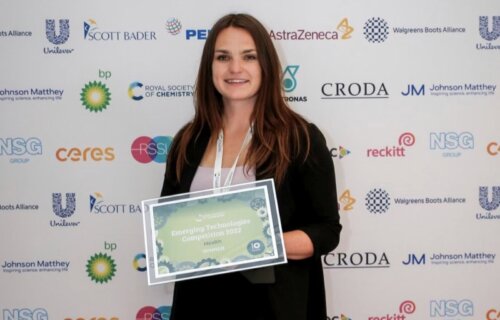BIRMINGHAM, United Kingdom — One of Britain’s top young scientists has died at the shockingly young age of 29 due to a rare form of heart cancer. Tragically, the scientist’s condition was originally diagnosed as a simple pulled muscle. However, her legacy may end up saving many lives from life-threatening infections.
Kirsty Smitten was a “world-leading” scientist set to potentially save countless lives thanks to her discovery of a new antibiotic medication. She passed away with her family beside her on Oct. 4, 2023, after spending seven weeks in Birmingham’s Queen Elizabeth Hospital.
When Smitten first went to the hospital last November, doctors thought she’d just pulled a muscle. However, she later received a terminal diagnosis with just months to live.
The 29-year-old was named a Forbes Under 30 scientist and, in February of this year, was crowned the Federation of Small Businesses’s Young Entrepreneur of the Year. Her cancer, cardiac angiosarcoma, was so rare her surgeon had never seen it before. Only two people are diagnosed with it a year in the U.K.
Speaking in March this year, Smitten said when she first arrived at the hospital with severe heart pain, she was sent away by a doctor and told to take codeine for a pulled muscle. However, she insisted something was wrong and waited for 11 hours before a CT scan revealed a cancerous tumor in her right atrium.

“Other than the fact I was in agony all my health was absolutely fine, I didn’t have any problems with heart rate or anything,” the late scientist said in a video, according to a statement from SWNS.
“But then they did a CT scan for my blood clot and found a 6cm tumor in my heart, which, obviously, was a bit of a shock, because I had no other symptoms prior to that. It’s been a bit hectic since then. They found the tumor but initially, they didn’t think it would be cancerous because it’s really, really rare.”
The disease’s rarity meant it took three months for doctors to properly diagnose Kirsty. At that point, she was told there was a 68-percent chance she would die in the next 12 months. Despite constant pain and weekly chemotherapy, she continued her vital work.
Kirsty was on the road to success
While doing her microbiology PhD at the University of Sheffield, the science star developed a new class of antibiotics treating multi-drug resistant bacteria. Big pharma’s interest was piqued, and with added funding, Kirsty set up MetalloBio in March 2021 — tackling the challenge of becoming a CEO while finishing her PhD.
Months later she was ranked on Forbes 30 Under 30 and the company received an award from the Royal Society of Chemistry’s emerging technologies competition.
“If we get the new drugs on the market it will potentially save tens of millions of lives,” Smitten explained. “A new class of antibiotics hasn’t reached clinics in over 30 years, and by 2050 antibiotic microbial resistance is expected to kill 10 million people, which is a death every three seconds per year. We would be able to prevent that.”
“I now see how important my work is, because if I get an infection I have about an hour to get IV antibiotics before it becomes fatal because with chemo I don’t have an immune system at the moment,” the scientist continued.
“I still work, I just can’t work the same as I used to and I can’t go to as many in-person things. I think it’s hit a lot of our investments. A lot of the investors we have are very committed to me, and how I built the company and the passion I have for what we’re doing, and my drive to take it forward. As bad as it is, me being ill hampers that. If you take away that drive, is the company still going to succeed?”

Just over a year after setting up MetalloBio, the young scientist said she was at the peak of her well-being, playing hockey and football once or twice a day, no ill-health, no fatigue, and traveling across the globe to speak at science conferences.
In November 2022, that all changed. Due to Kirsty’s frequent flights to the United States, her mother suspected it was a blood clot, and they headed to the hospital for tests. Given her age and her health, the doctor they saw concluded that she pulled a muscle in the gym or playing football.
“To get any kind of growth in your heart is very rare because your heart cells don’t replicate after a certain age,” Kirsty added. “I work in med-tech, and no one wants to fund something that only one person in 36 million is going to use, so there’s no new developments.”
Research into cardiac angiosarcoma is lacking because it affects so few people. Doctors said her tumor was inoperable, but as a scientist, she delved into the research and learned of people with more severe cases having “pretty much their whole hearts” removed and rebuilt.
The Royal Marsden, a world-leading cancer care charity in London, gave her a second opinion and said they would perform surgery. That gave Kirsty a 10-percent chance of surviving for five years. Tragically, that was not meant to be.
“I thought I was going to have kids and a family and I’ve told I’ve got seven months to live. I had to have emergency chemotherapy and I didn’t have a chance to freeze my eggs. So it’s been a bit of a tough couple of months,” the 29-year-old said before her death.
South West News Service writer Pol Allingham contributed to this report.


Ibizan hound has nothing to do with Catalan region. They’re from Ibiza, an island. Also, Spain has the Spanish Grayhound which is easily third on this Mickey Mouse list.